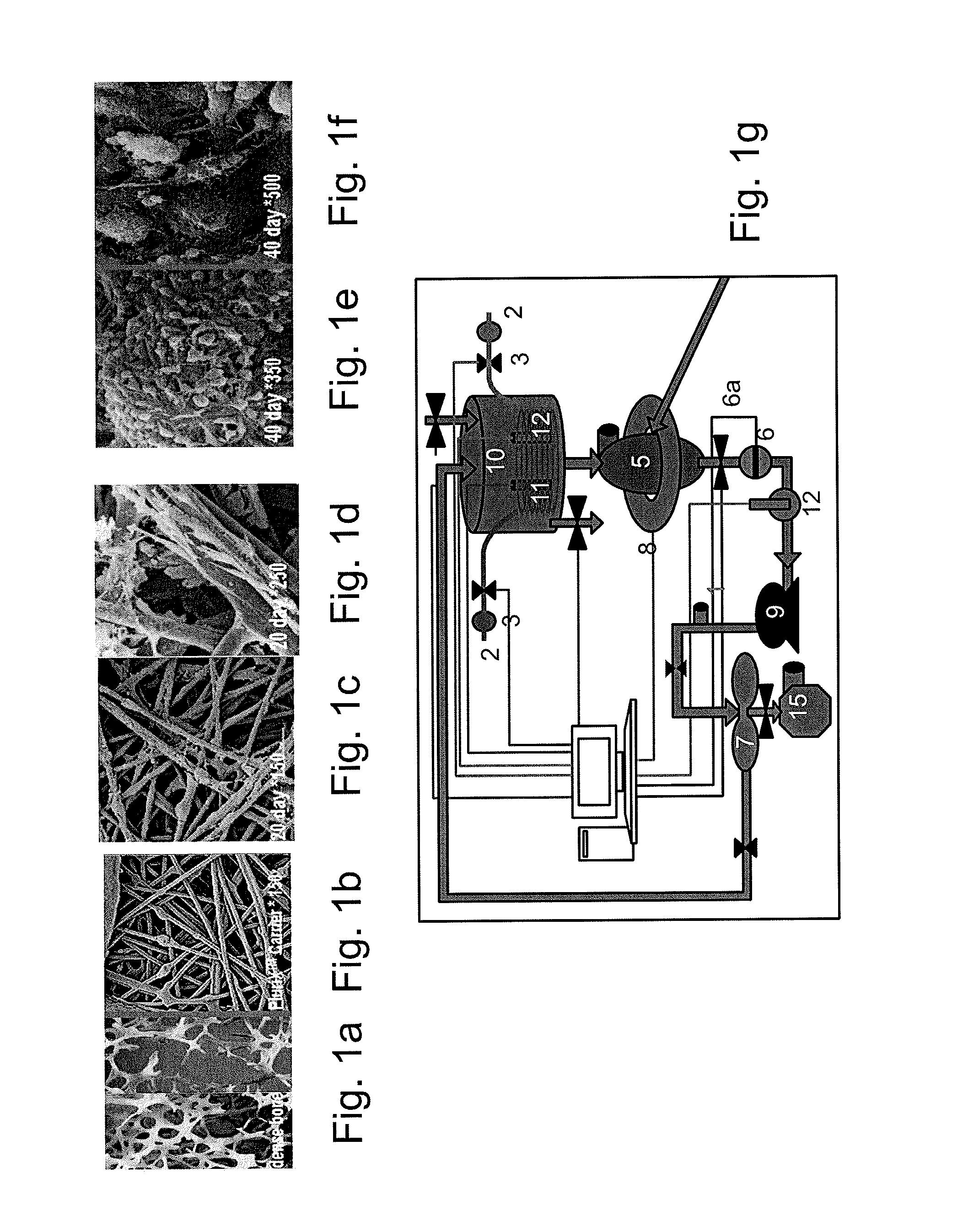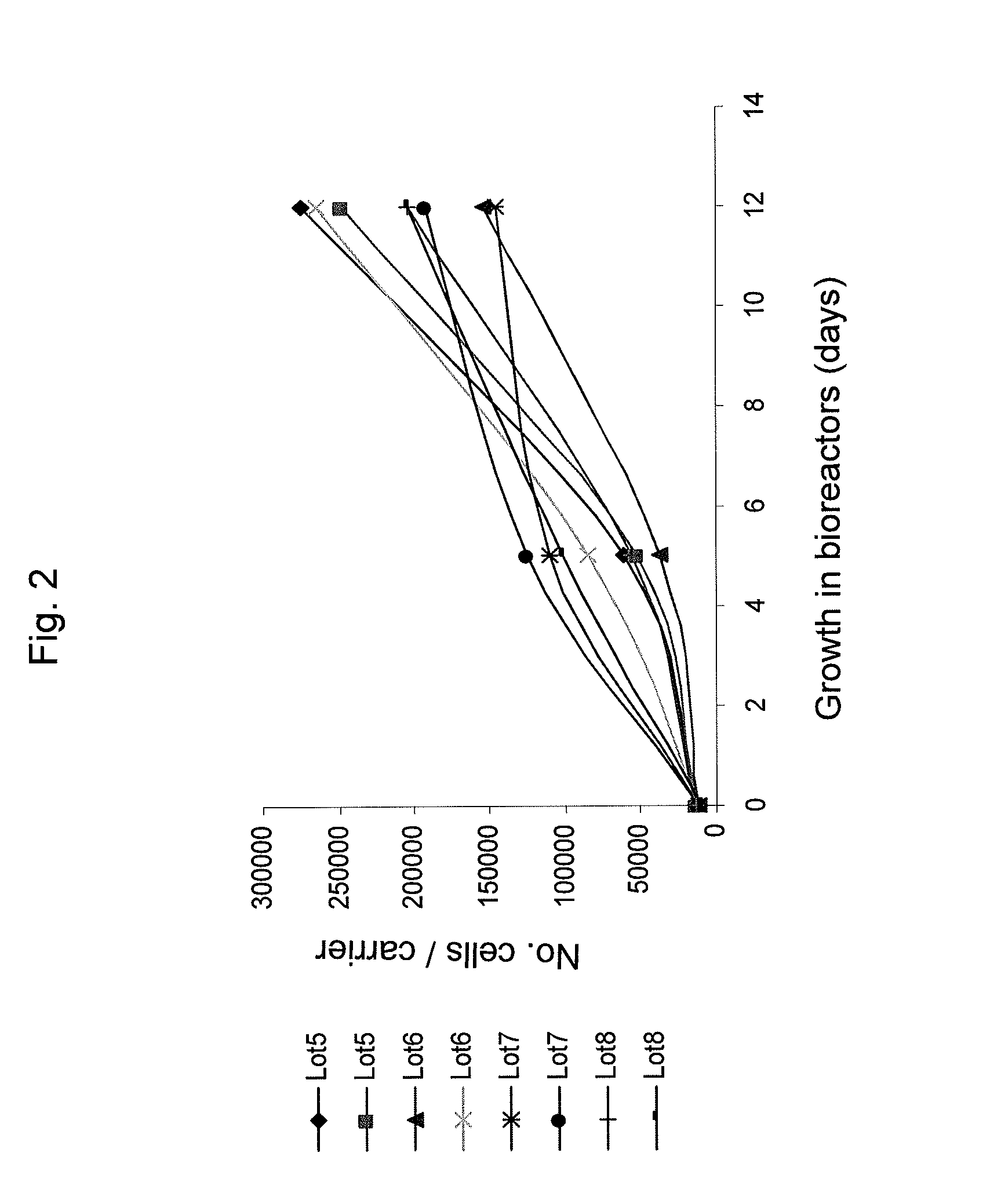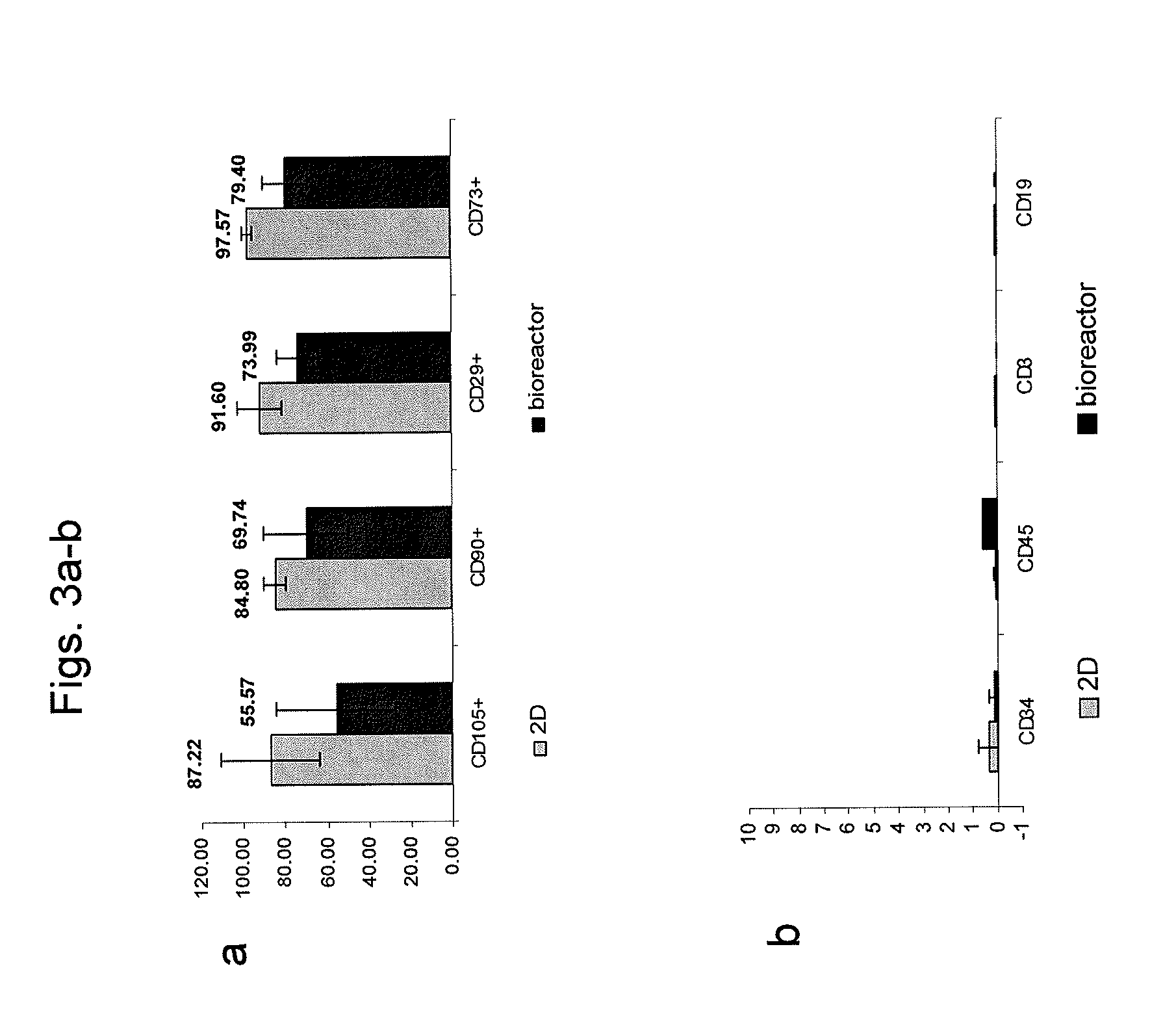Methods for cell expansion and uses of cells and conditioned media produced thereby for therapy
a technology of conditioned media and cell culture, which is applied in the field of methods, can solve the problems of low survival rate of these cells in the acceptor system, difficulty in isolating large quantities of normally occurring populations of these cells, and difficulty in obtaining large quantities of normal populations
- Summary
- Abstract
- Description
- Claims
- Application Information
AI Technical Summary
Benefits of technology
Problems solved by technology
Method used
Image
Examples
example 1
Production and Culturing of Adherent Stromal Cells (ASC) From Bone Marrow, Placenta and Adipose Tissues
[0166]Adherent cells were cultured in a bioreactor system containing 3D carriers to produce 3D-ASC cells, characterized by a specific cell marker expression profile. Growth efficiency was tested through cell count. The differentiation capacity of these cells was tested by culturing in a differentiation medium.
[0167]Materials and Experimental Procedures
[0168]Bone marrow stromal cells—Bone marrow (BM) stromal cells were obtained from aspirated sterna marrow of hematologically healthy donors undergoing open-heart surgery or BM biopsy. Marrow aspirates were diluted 3-fold in Hank's Balanced Salts Solution (HBSS; GIBCO BRL / Invitrogen, Gaithersburg Md.) and subjected to Ficoll-Hypaque (Robbins Scientific Corp. Sunnyvale, Calif.) density gradient centrifugation. Thereafter, marrow mononuclear cells (3) were collected, washed 3 times in HBSS and resuspended in growth media [DMEM (Biologica...
example 2
The Suppression of Lymphocyte Response by 2D and 3D Cultured ASCs
[0187]Adherent stromal cells, and particularly 3D-ASCs, were. found to suppress the immune reaction of human cord blood mononuclear cells in an MLR assay.
[0188]Materials and Experimental Procedures
[0189]Mixed lymphocyte reaction (MLR) assay—The immunosuppressive and immunoprivileged properties of 2D and 3D derived culturing procedures ASCs produced from the placenta, were effected by the MLR assay, which measures histocompatibility at the HLA locus, as effected by the proliferation rate of incompatible lymphocytes in mixed culturing of responsive (proliferating) and stimulating (unproliferative) cells. Human cord blood (CB) mononuclear cells (2×105) were used as responsive cells and were stimulated by being co-cultured with equal amounts (105) of irradiated (3000 Rad) human peripheral blood derived Monocytes (PBMC), or with 2D or 3D cultured adherent cells, produced from the placenta, or a combination of adherent cells...
example 3
Assessment of the Ability of Placenta Derived 3D-ASC to Improve HSC Engraftment
[0192]3D-ASC support of HSC engraftment was evaluated by the level of human hematopoietic cells (hCD45+) detected in sub lethally irradiated or chemotherapy pretreated immune deficient NOD-SCID mice.
[0193]Materials and Experimental Procedures
[0194]Isolation of CD34+ Cells—Umbilical cord blood samples were taken under sterile conditions during delivery (Bnei Zion Medical Center, Haifa, Israel) and mononuclear cells were fractionated using Lymphoprep (Axis-Shield PoC As, Oslo, Norway) density gradient centrifugation and were cryopreserved. Thawed mononuclear cells were washed and incubated with anti-CD34 antibodies and isolated using midi MACS (Miltenyl Biotech, Bergish Gladbach, Germany). Cells from more than one sample were pooled for achieving the desired amount (50,000-100,000 cells).
[0195]Detection of transplanted cells in irradiated mice—Seven week old male and female NOD-SCID mice (NOD-CB 17-Prkdcsci...
PUM
 Login to View More
Login to View More Abstract
Description
Claims
Application Information
 Login to View More
Login to View More - R&D
- Intellectual Property
- Life Sciences
- Materials
- Tech Scout
- Unparalleled Data Quality
- Higher Quality Content
- 60% Fewer Hallucinations
Browse by: Latest US Patents, China's latest patents, Technical Efficacy Thesaurus, Application Domain, Technology Topic, Popular Technical Reports.
© 2025 PatSnap. All rights reserved.Legal|Privacy policy|Modern Slavery Act Transparency Statement|Sitemap|About US| Contact US: help@patsnap.com



